Welcoming a new puppy or kitten into your home is an exciting milestone filled with joy and curiosity. But alongside the playful antics and cuddles, young pets come with unique health risks. Because they’re still developing physically and behaviorally, puppies and kittens are more prone to accidents, infections, and emergencies. Understanding how to recognize early warning signs—and knowing what to do—can make all the difference when minutes matter.
Recognizing When to Seek Emergency Care
Some signs demand immediate veterinary attention. If your puppy or kitten experiences choking, seizures, trouble breathing, severe lethargy, repeated vomiting or diarrhea, or collapses, don’t wait. Early action leads to better outcomes, especially with young animals whose conditions can deteriorate quickly.
Contact Burlington Veterinary Center if you’re concerned about your pet’s health.
Why Puppies and Kittens Are More Vulnerable
Young pets have underdeveloped immune systems, making them especially susceptible to illness. Even conditions that may seem mild in an adult pet can become severe in a puppy or kitten. Fleas can cause life-threatening anemia. Parasites can lead to protein loss, vomiting, and diarrhea. Parvovirus can result in devastating GI damage and sepsis. Kennel cough, which might only cause a cough in an adult dog, can progress to pneumonia in a puppy. Early veterinary visits are essential to detect and prevent these issues before they become emergencies.
Older pets in your household can also be a source of infection. Even if they appear healthy, they can carry and shed viruses and bacteria that pose a risk to your new arrival. Always consult your veterinarian about how to safely introduce pets and manage quarantine and vaccine schedules.
Common Emergency Situations
Choking and Breathing Problems
Puppies and kittens explore with their mouths, which increases the risk of choking. Gagging, pawing at the mouth, and blue gums are red flags. Learn the Heimlich maneuver for dogs and consider enrolling in a cat and dog first aid class.
Poison Ingestion
Toxic substances are everywhere: grapes, onions, chocolate, medications, certain houseplants, and even essential oils. ASPCA Poison Control is a 24/7 resource. Know what’s dangerous by reviewing toxic and non-toxic plants.
Vomiting and Diarrhea
While sometimes caused by dietary changes, GI upset in young pets can also signal parasites, viral infections, or even intestinal blockages. Parvo is especially serious in puppies and can cause dehydration, sepsis, and death. Perform a home exam but don’t delay veterinary care if symptoms persist.
Hypoglycemia (Low Blood Sugar)
Toy breeds and underweight kittens are at risk. Signs include tremors, disorientation, and weakness. Apply a bit of honey to the gums and seek care immediately.
GI Foreign Bodies
Puppies and kittens chew everything—socks, toys, rocks, sticks, even furniture. GI blockages can require emergency surgery. Kittens love strings, ribbons, thread, and similar types of objects, causing a particular emergency called a “linear foreign body”. Pet-proofing your home is critical.
Trauma
Kittens can be injured by falls, or jumping on heat sources like oven tops. Puppies may get paws stepped on, tails caught in doors, or suffer bites during rough play. Dogs playing too hard with a puppy can cause broken bones, dislocations, or concussions.
Be alert for signs of lameness, sudden behavior changes, or swelling. Anisocoria (uneven pupils) after a head bump can be a serious neurological sign. Always supervise play with older pets and discourage high-impact jumping off furniture.
Respiratory Infections and Pneumonia
Coughs or sneezes may seem minor, but for a young pet, they can quickly lead to pneumonia. Canine infectious respiratory disease (CIRD) or feline upper respiratory infections (URIs) are highly contagious and can become life-threatening without prompt care.
Bite Wounds and Wildlife Exposure
Improper introductions between pets can result in bites, especially during feeding or play. Dog parks, wildlife encounters, or even neighborhood cats can cause injuries or transmit disease. Always introduce pets slowly, supervise interactions, and ensure new pets are fully vaccinated before exposure.
Preventing Emergencies at Home
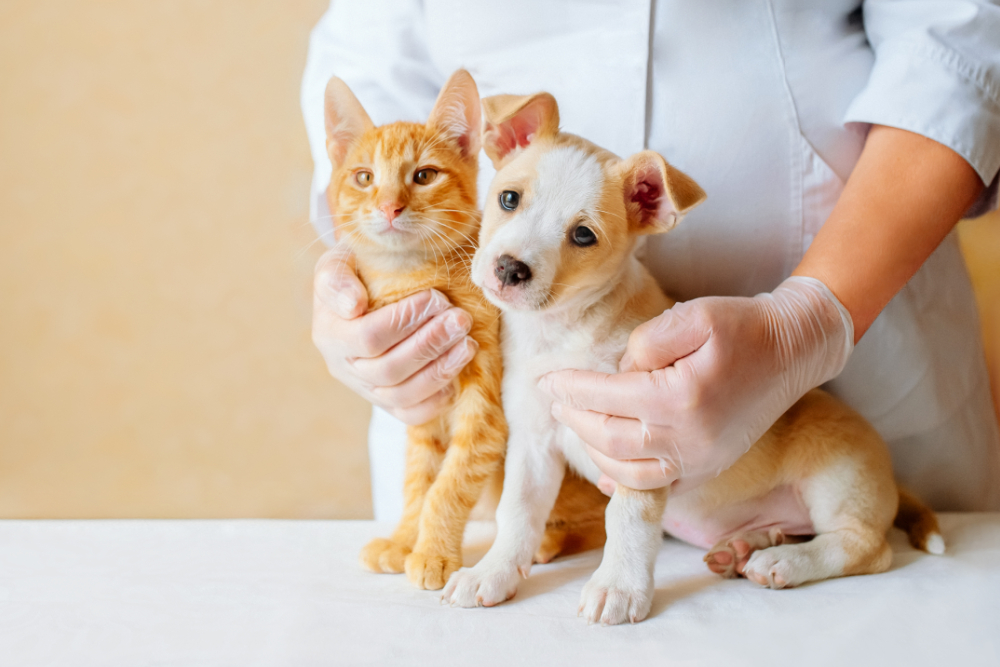
Emergency prevention is multi-layered and includes both environment and behavior. In addition to pet-proofing your home, consider the following:
- Socialize early and often: Enroll in puppy classes or safe kitten meetups to build confidence and reduce fear-based reactions.
- Train for safety: Teach recall, “leave it,” and “drop it” early. These can save your pet’s life.
- Use leashes: Always leash your pet outdoors unless in a secure, fenced area.
- Avoid dangerous scraps: Don’t give in to begging or feed table food that may be harmful.
- Be present: Accidents happen when attention lapses. Don’t leave young pets unsupervised in potentially dangerous spaces.
Breed-Specific Emergency Awareness
Know your pet’s breed tendencies. Breed-specific health risks and high-risk breeds have unique needs.
- Frenchies and bulldogs: Brachycephalic breeds are prone to respiratory crises. Overexcitement or overheating can become an emergency.
- Dachshunds: Prone to IVDD. Don’t allow jumping off couches or stairs.
- Toy breeds: More likely to suffer hypoglycemia or trauma.
Healthy Foundations: Socialization & Preventive Care
Start off right with proactive health and behavior habits:
- Five Essential Tips for New Cat Owners
- Kitten Success Guide
- Nurturing Your Feline Friend
- Preventive Behavioral Care: Setting Your Pup Up for Success
Financial Planning for Pet Emergencies
Be prepared:
Know When to Call the Vet
Reach out right away if your pet:
- Has trouble breathing
- Vomits or has diarrhea with blood
- Collapses or has a seizure
- Has pale, blue, or gray gums
- Ingests a foreign object or known toxin
Puppies and kittens are resilient, but their fragility demands vigilance. With early vet care, smart preparation, and watchful eyes, you can avoid the most common emergencies and help your new companion grow up healthy and happy.
Book an Appointment with Burlington Veterinary Center to get your puppy or kitten started off right.


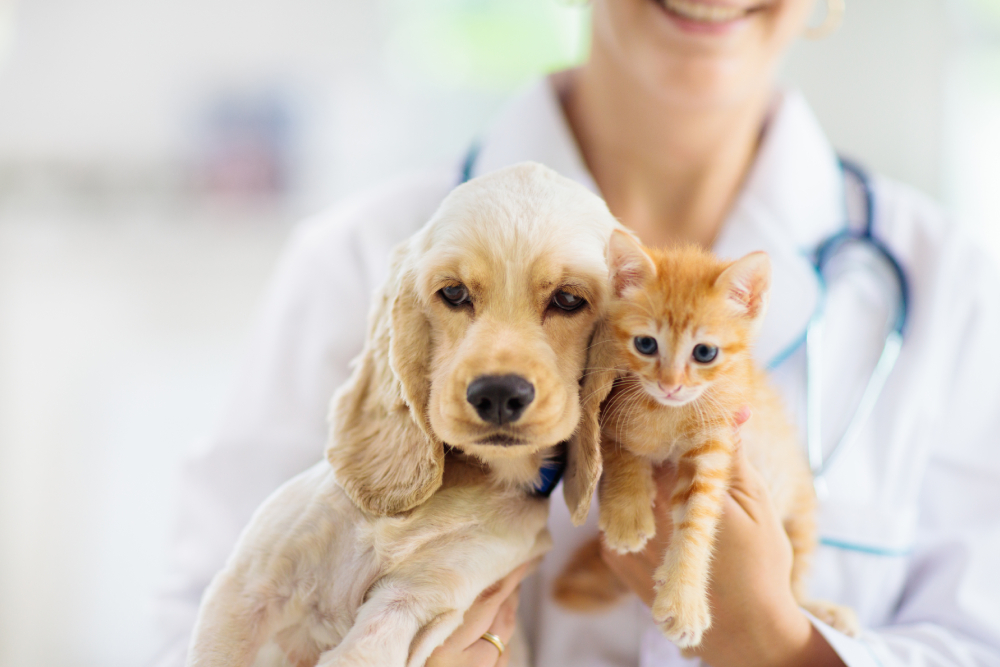
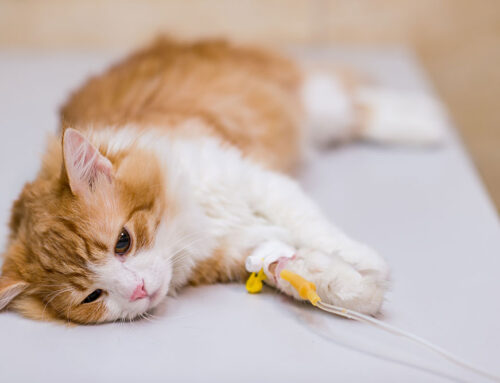
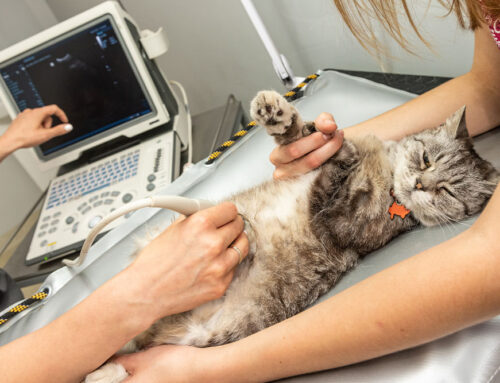

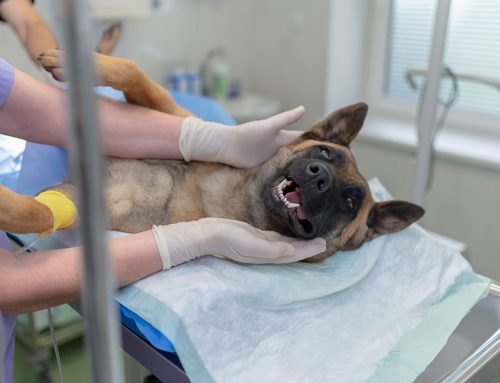
Leave A Comment